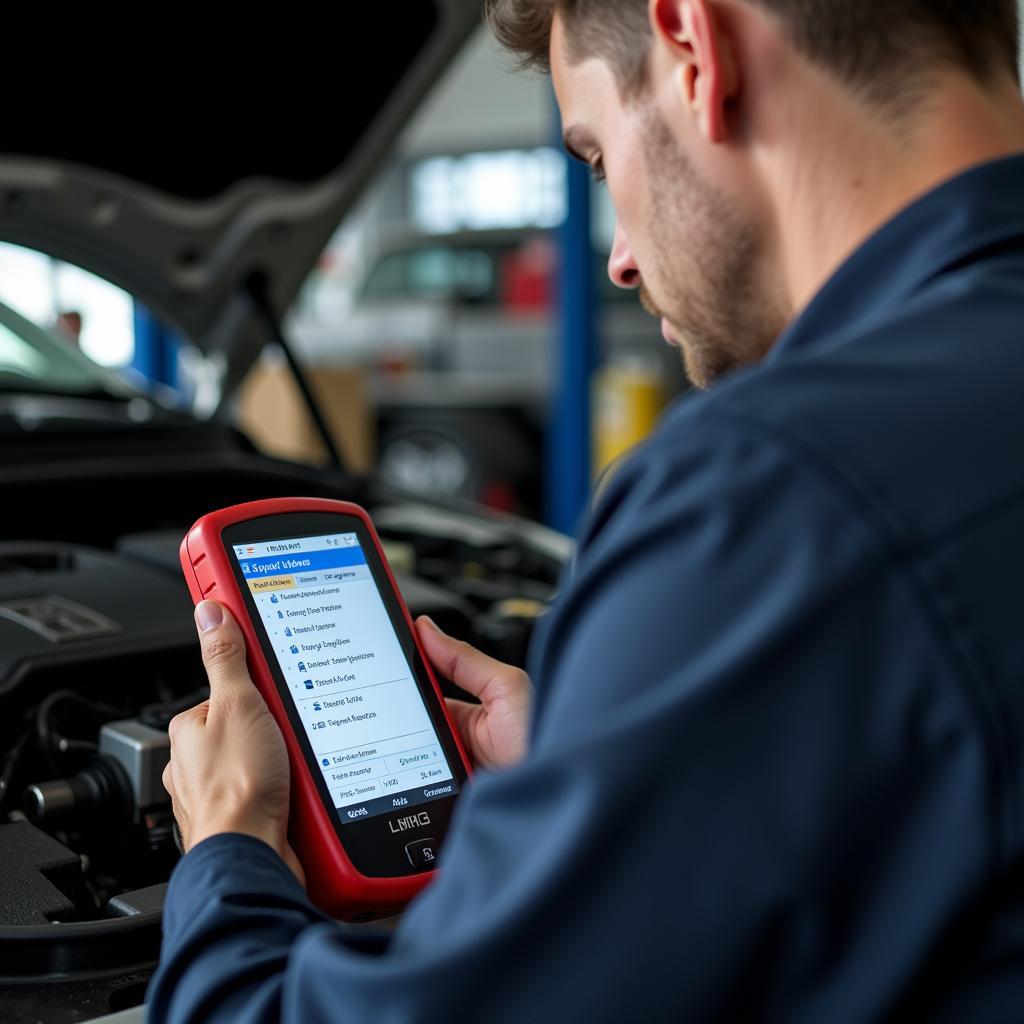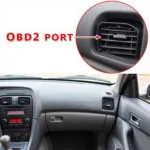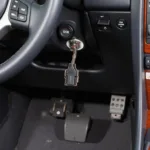You’ve probably heard a lot about OBD2 scanners and their ability to diagnose car problems, but you might also have some concerns. One of the most common questions we get at OBDFree is, “Will an OBD2 scanner damage my car?”
The short answer is: No, a properly used OBD2 scanner will not damage your car.
Let’s delve deeper into why that is and address some common misconceptions.
Understanding How OBD2 Scanners Work
To understand why an OBD2 scanner won’t harm your car, it’s helpful to know how it works. Your car’s computer system, also known as the Engine Control Unit (ECU), constantly monitors various systems and components. The OBD2 port, typically located under the dashboard on the driver’s side, acts as a communication gateway to this system.
When you plug in an OBD2 scanner, it establishes a connection with the ECU and retrieves diagnostic information. This information is then displayed on the scanner’s screen, providing you with valuable insights into your car’s health.
OBD2 Scanners: Read-Only Devices
Many people worry that an OBD2 scanner might accidentally change settings or send incorrect commands to their car’s computer. However, it’s important to remember that most OBD2 scanners are primarily read-only devices. This means they can access and display data from your car’s computer but cannot alter any settings or send commands that could potentially cause harm.
When Things Could Go Wrong (But Likely Won’t)
While OBD2 scanners themselves are safe, there are a few rare scenarios where issues might arise:
- Using a faulty or low-quality scanner: Just like any electronic device, an OBD2 scanner can malfunction. Using a cheap or damaged scanner might result in inaccurate readings or, in extremely rare cases, communication errors with your car’s computer.
- Forcing the connector: The OBD2 port and connector are designed to fit in a specific way. Forcing the connector or using excessive force while plugging it in can damage the port.
- Modifying your car’s software: Some advanced scanners allow for modifications to your car’s software. Unless you have extensive knowledge and experience, it’s best to avoid making any changes to your car’s software, as this can potentially lead to unexpected issues.
 Mechanic using OBD2 scanner in a garage
Mechanic using OBD2 scanner in a garage
Tips for Using an OBD2 Scanner Safely
Here are a few tips to ensure you’re using your OBD2 scanner safely and effectively:
- Purchase a reputable brand: Invest in a scanner from a trusted brand known for quality and reliability.
- Handle the scanner and connector with care: Avoid dropping the scanner or bending the connector pins.
- Consult a professional if needed: If you encounter any error messages or unusual behavior while using the scanner, it’s best to consult a qualified mechanic.
“An ounce of prevention is worth a pound of cure.” Regularly using an OBD2 scanner can help you catch minor issues early on, potentially saving you from costly repairs down the road. – John Roberts, Senior Automotive Engineer
Conclusion
Using an OBD2 scanner is a safe and effective way to gain insights into your car’s health and diagnose potential problems. As long as you use a quality scanner, handle it with care, and avoid making unauthorized modifications, you can rest assured that scanning your car won’t cause any damage.
By empowering yourself with the knowledge provided by an OBD2 scanner, you can become a more informed car owner and keep your vehicle running smoothly for miles to come.

